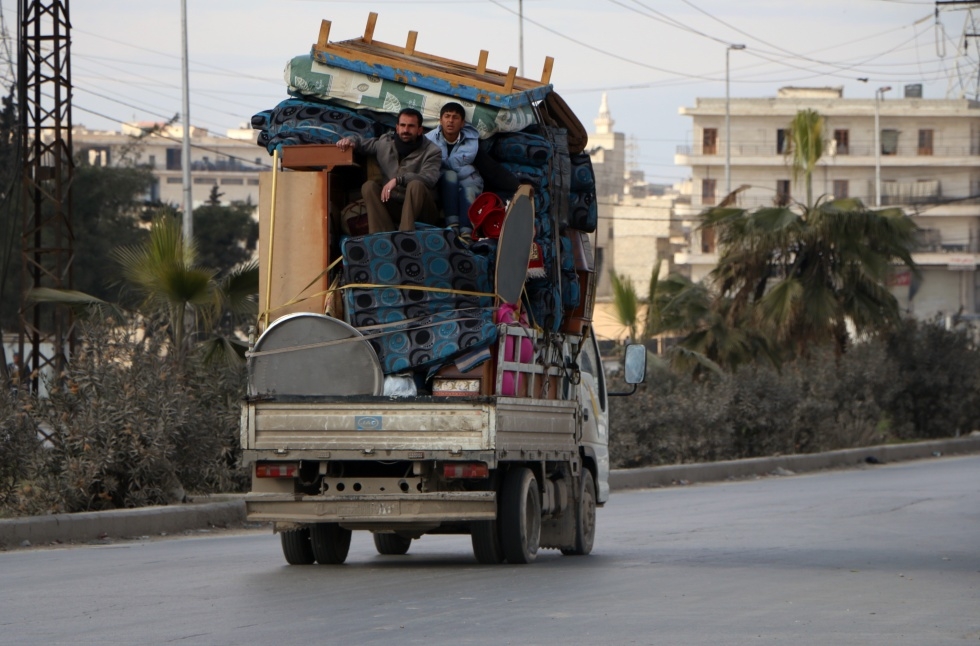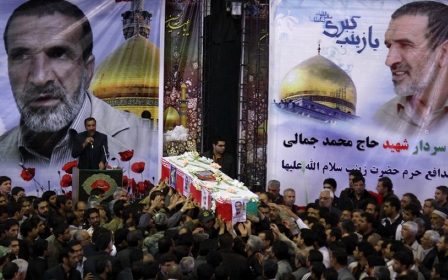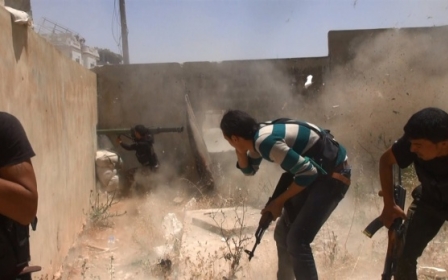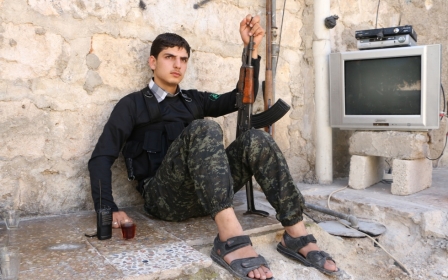UN cuts Syria food aid over funding shortfall

The United Nations said on Monday that it has started cutting the food aid it provides to 4.2 million Syrians ravaged by war because of a shortfall in funding.
"Yes, we have already started... this month," to cut supplies to the 4.2 million Syrians inside the country who have been receiving food aid, the World Food Programme's assistant executive director Elisabeth Rasmusson told AFP in an interview.
"We decided that because of the funding shortfall, we will provide food to everybody but its cut down to 60 percent of the normal (food) basket," she said.
Around two million Syrian refugees in Lebanon, Jordan, Turkey, Iraq and Egypt would also be affected by the WFP's decision to scale back assistance from next month, Rasmusson said.
The WFP requires about $352 million (280 million euros) until the end of the year as it has completely run out of funds and is totally dependent on "internal finance mechanisms" to operate, she said.
Rasmusson is in Kuwait to attend a meeting for main Syria donor countries and agencies. Kuwaiti officials complained during the meeting that some countries have not fulfilled their aid pledges for Syria.
Kuwait hosted two high-level conferences for Syria donors in January 2013 and January this year.
Rasmusson said she understands a third conference is expected to be held in January, but the venue has not been determined.
Cutbacks in aid to refugees in countries neighbouring war-torn Syria will start from next month. Syrians in Lebanon will receive 20-30 percent less assistance and in Turkey, WFP will not provide food to refugees in camps, the UN official said.
Rasmusson said WFP and UN officials are working "day and night" to contact donor countries and private sector because "we do not want to stop providing food to the Syrians".
She said WFP and UN aid agencies budgets have been strained by trying to respond to multiple crises around the world, particularly conflicts in the Middle East and the Ebola virus in West Africa.
"WFP budget projections for 2014 were $4.3 billion. Now, the needs are $8.5 billion," said Rasmusson, adding that "the funding needs for the Middle East have at least doubled to around $4 billion" with Syria accounting for half of the amount.
Syria's civil war began in March 2011 as a peaceful protest movement inspired by the Arab Spring and demanding Syrian President Bashar al-Assad's ouster, but morphed into a brutal war after pro-Assad forces unleashed a massive crackdown against dissent.
The war has resulted in the deaths of an estimated 191,400 people, and displaced roughly half of the country's population, according to the UN.
The majority of fatalities are reportedly of civilians, primarily killed by pro-Assad forces, although other groups are also implicated.
Middle East Eye propose une couverture et une analyse indépendantes et incomparables du Moyen-Orient, de l’Afrique du Nord et d’autres régions du monde. Pour en savoir plus sur la reprise de ce contenu et les frais qui s’appliquent, veuillez remplir ce formulaire [en anglais]. Pour en savoir plus sur MEE, cliquez ici [en anglais].




